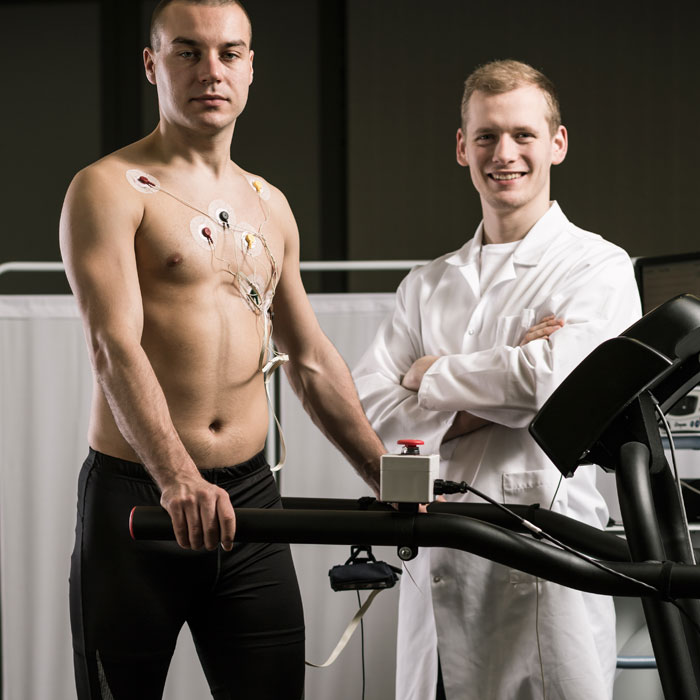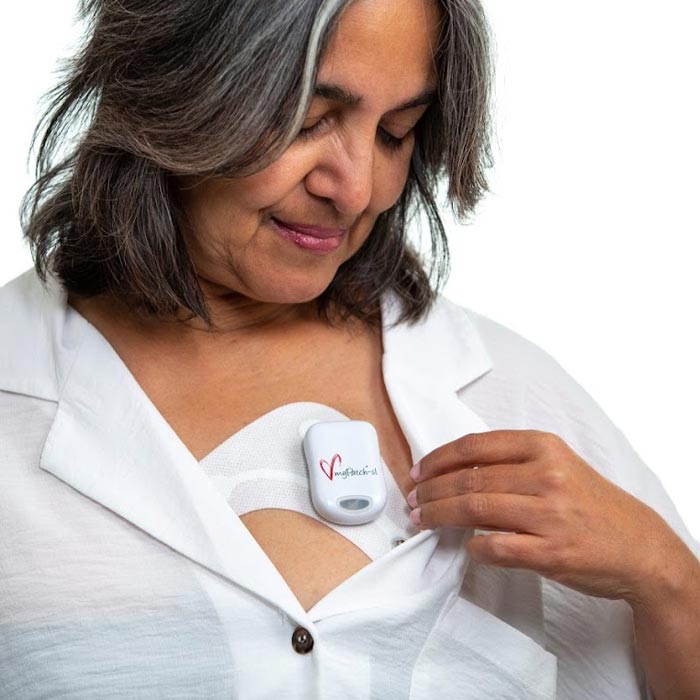An ECG test takes about 5-10 minutes. Small metal electrodes are placed on your arms, legs and chest. Wires connect these electrodes to the ECG machine. This machine detects the electrical signals that start each heartbeat and records them on paper or a computer.
During the test, you lie quietly on a table while the machine records your heart’s electrical activity. You will need to lie as still as possible, without talking, and breathe normally. After the procedure, the electrodes are removed and discarded. The ECG is painless and harmless.





